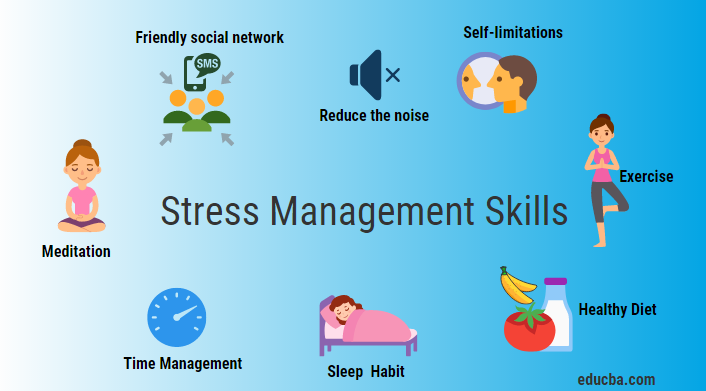Stress Management Techniques Nurturing Mental and Emotional Well-Being

Stress can be a powerful force in the lives of individuals and organizations. When unmanaged, it can undermine relationships and contribute to physical health problems and mental illness.
Fortunately, there are several methods to manage and reduce stress. Short-term stress relief strategies focus on calming the body’s reaction to a specific event. Long-term stress reduction techniques are based on addressing the root cause of the problem.
1. Relaxation Techniques
Almost everyone can benefit from learning relaxation techniques. These strategies help to slow your breathing and focus your attention on a calming or comforting image or place. They can also help you become more aware of your stress warning signs. There are many ways to learn these relaxation techniques, and you should practice them regularly. Complementary and integrative health specialists and mental health providers can teach you, or you can find self-help guides or classes in your community.
One of the easiest techniques is to close your eyes and use diaphragmatic breathing, focusing on the inhale and exhale. Try repeating a calming phrase to yourself. You can also imagine a relaxing location such as a beach, waterfall or forest to relax. Sufficient sleep is critical to nurture your mental and emotional well-being, so strive for 7-9 hours of restful sleep per night.
2. Exercise
Managing stress is important for our mental and physical health. Stress is a normal physical and psychological response to change in a situation that our bodies and minds find challenging or overwhelming. It can help us cope with difficulty, but long-term negative stress can contribute to poor health outcomes like chest pain or depression.
According to the ADAA’s online poll, 14 percent of students use exercise as their primary stress management technique. Other popular coping mechanisms include talking to friends or family; watching TV or movies; eating, sleeping and listening to music. Independent samples t-tests and linear regression models showed that four PSS-10 items significantly predicted whether or not students used exercise as a stress management tool. The predictors were gender, race/ethnicity and GPA.
3. Healthy Eating
Many people turn to food to comfort themselves during times of high stress. Eating a healthy diet that includes protein (fish, lean meats, poultry, eggs), whole grains, fruits, vegetables and nuts can help support mental health.
When stressed, your body releases hormones like cortisol and insulin that can ramp up hunger and cravings for unhealthy foods. Sugary foods may provide a temporary energy boost, but the blood sugar crash that follows can make you feel worse in the long run.
A registered dietitian nutritionist can help you establish a healthy eating pattern that supports your mental and emotional well-being. A balanced diet that includes a variety of nutrients including antioxidants, omega-3 fatty acids, B vitamins and magnesium (found in leafy greens, avocados, beans and nuts) can help manage stress.
4. Sleep
Getting enough sleep is key to overcoming stress and maintaining a balanced life. A good night’s rest can reduce day-to-day worries, lower blood pressure, and even alleviate the symptoms of certain health conditions.
Stress management techniques can include things like positive reappraisal and putting the situation in perspective, which help to lower depression and anxiety symptoms. Practicing mindfulness and engaging in guided meditation can also help.
Everyone faces stress in their daily lives, and high levels of unwanted stress can impact our overall sense of well-being and even contribute to mental illness. But it’s important to recognize when we need to take steps to improve our quality of life. The first step is identifying the sources of stress. Often, it’s easy to identify big stressors such as a job change or divorce, but everyday habits can be hard to pinpoint.
5. Positive Thinking
Positive thinking is a mental and emotional attitude of expecting good results. It doesn’t mean seeing the world through rose-colored glasses or ignoring unpleasantness. It’s about approaching stressful situations more productively and avoiding unhealthy coping mechanisms.
Identify negative self-talk, and replace it with positive thoughts. If a negative thought pops into your mind, correct it right away and practice redirecting your attention to something more constructive.
Avoid black-and-white thinking, where every outcome is either good or bad and there’s no middle ground. Life is more complicated than that, and many things have shades of gray. Medical professionals are often faced with unforeseen events that they cannot control, such as an emergency surgery or the death of a patient. Practicing positive thinking can help medical professionals cope with these situations and reduce their stress levels.